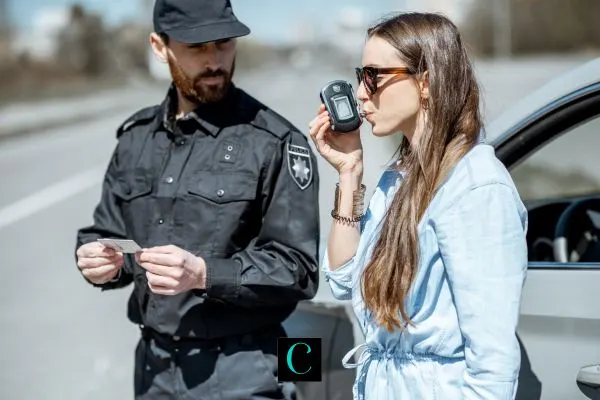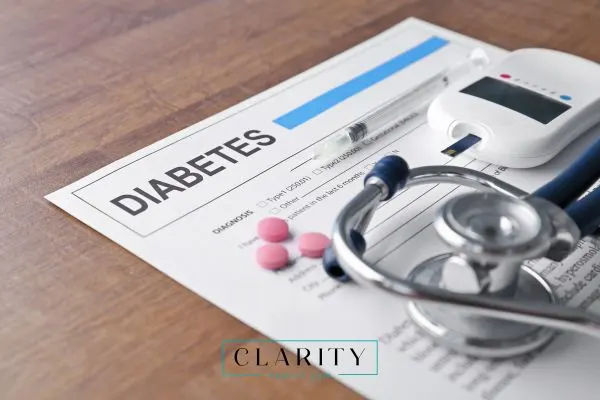Michigan takes a strong stance against underage drinking and driving through its Zero Tolerance law, which is designed to keep the roads safe and discourage alcohol use by drivers below the legal drinking age. This law applies to any driver under 21 who operates a motor vehicle with even a small amount of alcohol in their system, meaning the consequences can be triggered even if the driver doesn’t feel impaired.
Because the law applies even with a bodily alcohol content (BAC) of just 0.02%, underage drivers can face serious criminal charges, including fines, license restrictions, and community service. For families, this can be a frightening and overwhelming situation. If you or your child has been accused of violating this law, consulting with a skilled criminal defense lawyer is essential to protect your future and legal rights.
If you or your child is facing charges under Michigan’s Zero Tolerance law, contact Clarity Law today for a confidential consultation. Our experienced defense attorneys understand how to navigate these complex cases and will fight to protect your rights and your future.

What Does Michigan’s Zero Tolerance Law Mean?
Michigan’s Zero Tolerance law makes it illegal for drivers under 21 to operate a vehicle with any measurable amount of alcohol in their system. While adults over 21 are held to the legal blood alcohol content limit of 0.08%, underage drivers can be charged with a violation at just 0.02%. This lower threshold reflects the state’s strict stance on driving before reaching the legal drinking age.
If the underage driver’s BAC reaches 0.08% or more, they may face the same criminal penalties as an adult OWI (Operating While Intoxicated) offense. These penalties can include large fines, license suspension, and in some cases, the possibility of jail time.
Because a conviction can affect a young person’s ability to drive, attend school, or apply for jobs, legal representation is strongly advised to minimize the impact on their permanent record.
Can an Underage Driver Refuse a Breath Test?
Under Michigan’s implied consent law, anyone who holds a driver’s license, regardless of age, has already agreed to submit to chemical testing if suspected of impaired driving. This means that refusing a breath test can lead to an automatic one-year driver’s license suspension for a first-time offender and a two-year suspension for a second refusal within seven years.
Although some underage drivers may believe that refusing the test helps them avoid charges, that’s not necessarily true. Prosecutors can still rely on field sobriety tests, officer observations, and other evidence to file criminal charges. Quick action is required to request a hearing to challenge the suspension—another reason why speaking with a criminal defense lawyer is crucial.
Learn More: What Happens if You Don’t Take a Breathalyzer in Michigan?
Penalties for Violating the Zero Tolerance Law
A first offense under the Zero Tolerance law is classified as a misdemeanor. The penalties can include a fine of up to $250 and up to 360 days of community service. While a jail sentence is uncommon for first offenses, it is not completely off the table depending on the circumstances of the case.
Other consequences can include license restrictions, points on the driver’s record, and increased insurance premiums. These are real, lasting consequences that can hinder a young person’s mobility, independence, and future opportunities.
Harsher Penalties for Repeat Violations
For drivers with a second violation within seven years, the consequences increase significantly. These may include up to 93 days in jail, a fine of up to $500, and a minimum of 60 community service hours. Repeat offenses also often trigger mandatory alcohol treatment programs, license suspension, and sometimes ignition interlock requirements.
It’s important to remember that Michigan treats repeat offenses seriously, even if they involve relatively low BAC levels. The state sees these violations as a pattern of risky behavior and responds accordingly with elevated criminal consequences.
How It Differs from a Standard DUI
The Zero Tolerance law applies specifically to underage drivers with a BAC between 0.02% and 0.07%. If an underage driver’s BAC is at or above 0.08%, they will face adult charges similar to any other DUI case, including the possibility of jail time and more aggressive prosecution.
This difference highlights how Zero Tolerance violations can evolve into more serious legal problems. What might start as a minor infraction can turn into a full-fledged drunk driving conviction if alcohol levels are high enough or other violations are involved.
Long-Term Consequences
A Zero Tolerance conviction remains on a person’s driving record for two years from the date of the offense. During this time, it may raise auto insurance rates, limit job opportunities, and create barriers to higher education or military service. In some cases, the charge may still show up on background checks long after the violation has cleared from the driving record, depending on whether it becomes part of the offender’s permanent record.
Some underage offenders may be eligible to request expungement, but this is not guaranteed and often depends on the specific circumstances of the case. Legal support can help explore whether this option is viable.
Additional Charges You Might Face
Michigan law often bundles Zero Tolerance violations with other related offenses, such as possession of alcohol as a minor, open container violations, or traffic infractions like speeding or reckless driving. These can compound your case and lead to more complex penalties.
Even driving home from a religious service or community event where alcohol is present in the car can raise legal issues if you’re underage and found in possession of alcohol, even unopened. This is why it’s critical to understand your rights and responsibilities as a young driver.
Possible Defenses
Working with an experienced drunk driving attorney will allow you to learn all the possible defenses for your specific case. Some of the most common defenses are:
- Faulty equipment
- Challenging Blood Alcohol Concentration (BAC) results
- Preexisting medical conditions
- Lack of evidence
Faulty Breathalyzer Test or Equipment Malfunction
Breathalyzer tests are often used to figure out if someone has been drinking, but they’re not perfect. Sometimes the equipment malfunctions or isn’t calibrated properly, which can make the test results wrong. Also, if the officer doesn’t follow the correct procedures, it can affect the outcome. This matters even more when an underage offender is involved, since the first-time OWI Zero Tolerance offense can have serious consequences like license revocation or suspension of driver privileges. In these situations, a good lawyer might check the machine’s maintenance records and how it was used. If there are problems, it could lead to questions about whether the evidence is reliable, especially when the future of a restricted driver is on the line.
Challenging the BAC Results
Even if the breathalyzer was working properly, the blood alcohol content (BAC) result might still be off. Something like mouthwash or a recent drink could leave alcohol in the mouth and cause a false reading. A lawyer might argue that the test wasn’t done under the right conditions or at the right time, especially if it was a drunk driving offense involving an underage individual. This could help prove the driver wasn’t actually over the legal limit when they were operating the vehicle.
Medical Conditions or Medications
Sometimes, medical conditions like diabetes, acid reflux, or GERD can also mess with breath test results. These health issues can cause certain chemicals to show up in a person’s breath, making the BAC reading higher than it really is. A defense attorney might use this to fight the charges and show that the driver shouldn’t face harsh penalties like drivers license revocation, vehicle impoundment, or harsh fines. This is especially important for someone’s future ability to drive, get a job, or avoid long-term consequences from a criminal defense case.

Understanding the Broader Impact of a Zero Tolerance Violation
Even one zero tolerance violation can have an impact on employment. In some cases, a conviction may become part of a person’s permanent record, limiting future opportunities and impacting their quality of life well beyond the courtroom.
Alternative Sentencing Options for First-Time Offenders
If you are a first-time offender, your attorney may be able to pursue alternative sentencing options such as alcohol awareness courses, probation, or a deferred judgment.
These alternatives can help young drivers avoid a jail sentence and the stigma associated with a criminal conviction, while still addressing the issue in a constructive way. Courts may also consider reducing criminal penalties in exchange for voluntary compliance with conditions like additional days of community service or treatment.
Don’t Face Zero Tolerance Charges Alone
While Michigan’s Zero Tolerance law is tough, an accusation doesn’t automatically mean a conviction. Each case has its own circumstances, and with the right strategy, it may be possible to challenge the charges, question the reliability of the evidence, or negotiate for reduced penalties. From disputing a faulty breath test to advocating for alternative sentencing, a qualified lawyer with skilled legal representation can make a critical difference.
Facing a Zero Tolerance charge can be overwhelming, but you don’t have to handle it alone. Contact Clarity Law today for a personalized consultation. Our dedicated criminal defense team, led by a qualified lawyer, will help you understand your options and work tirelessly to secure the best possible outcome.
